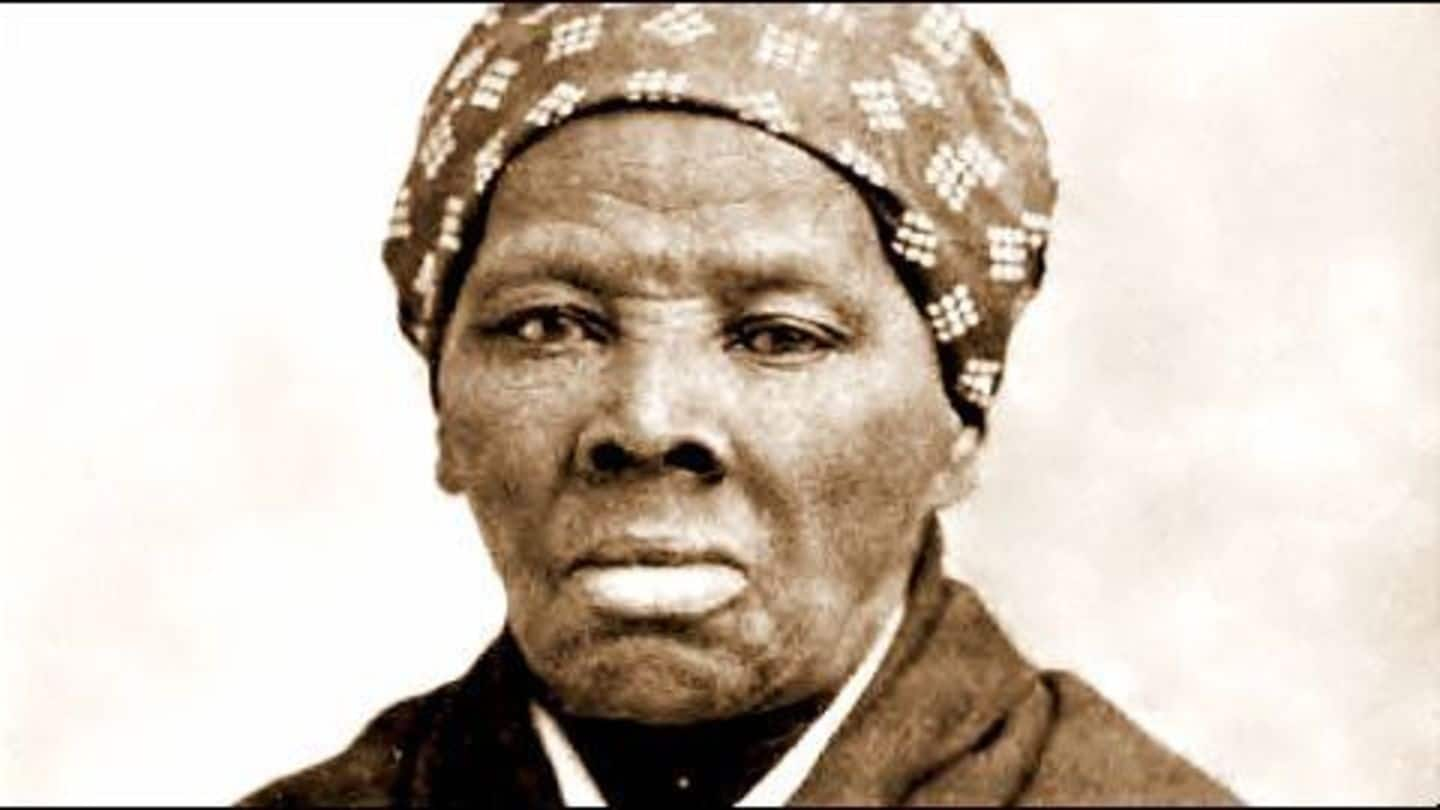
Anti-slavery advocate-Harriet Tubman to feature on US currency
What's the story
Anti-slavery pioneer, Harriet Tubman would soon become the first Afro-American on the face of US paper currency, the US Treasury Department announced.
She would also become the first woman in over a century to take the centre spot on the US paper money.
Reportedly, Tubman, a slave who fought against slavery, would replace former-US President Andrew Jackson, a slave-owner, on the $20 currency note.
Introduction
Who was Harriet Tubman?
Harriet Tubman, who was born in the early 1820s in Maryland, was an Afro-American humanitarian, abolitionist and a Union spy during the American Civil War.
Tubman was born into an enslaved-family but eventually escaped to Philadelphia and returned to free her family.
The anti-slavery advocate also rescued about seventy slaves and became a 'conductor' on the 'Underground Railroad' (secret activity system to free slaves).
1861-65
First woman to lead armed-expedition in war
During the American Civil War (1861-65), which determined whether America would be a Union or Independent, Tubman joined the Union Army as a cook and later became a nurse.
She was appointed as an armed-scout and spy and became the first woman ever to lead an armed-expedition in war.
During the war, which had ended slavery in America, she had freed 700 slaves.
Information
Tubman died in her early 90s
After the war had come to an end, Tubman settled in Auburn in New York along with her family. She died on 10 March 1913. She had become an icon of freedom and courage in the US.
19th Century
Tubman fought for women's right to vote
During her later years, Harriet Tubman strived to promote women's suffrage/right to vote in elections.
She traveled to places, spoke out for women's voting rights, and explained her life experiences to support her point and promoted women's equality to men.
Limited voting rights were given to women in some parts of the US, along with Sweden, Finland, and Iceland in late 19th century.
Historical
Harriet Tubman was honored for her service
In 1897, a newspaper which supported women's right to vote in elections had reported that a series of functions were held in Boston to honor Harriet Tubman and her lifetime service to the country.
Personal
Tubman pushes Jackson back
Andrew Jackson was the seventh US President during 1829-37. Jackson was known to own hundreds on slaves who worked on his plantation. Tubman would now occupy his place on the $20 bill whereas Jackson would be moved back.
21 Apr 2016
Other currency notes also to be redesigned
Jack Lew, Secretary-US Treasury Department, said that $5 and $10 notes would also be redesigned so that they reflect more American history.
The reverse of $10 note would feature pictures of five female-leaders of the women's suffrage movement including Elizabeth Stanton and Sojourner Truth.
The backside of $5 bill would carry images of the former-first lady, Eleanor Roosevelt, and civil-activist Martin Luther King Jr.
Personal
Redesigned currency notes to be unveiled in 2020
Jack Lew said that the redesigned currency notes would be revealed by 2020 and would also be circulated as soon as possible. He added that $10 bill would be released first.
21 Apr 2016
US currency notes lack women on them
The decision to replace the former US President, Andrew Jackson, with Harriet Tubman was much awaited.
The decision followed several months of outreach to decide which woman should be featured on the note.
The Treasury announced its plans in June'15 to feature a woman on $10 note following a young girl's letter to President Obama, which criticized the lack of women on the currency.